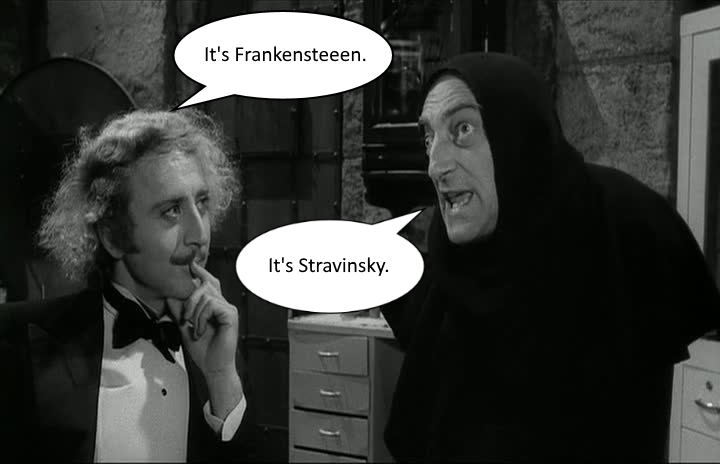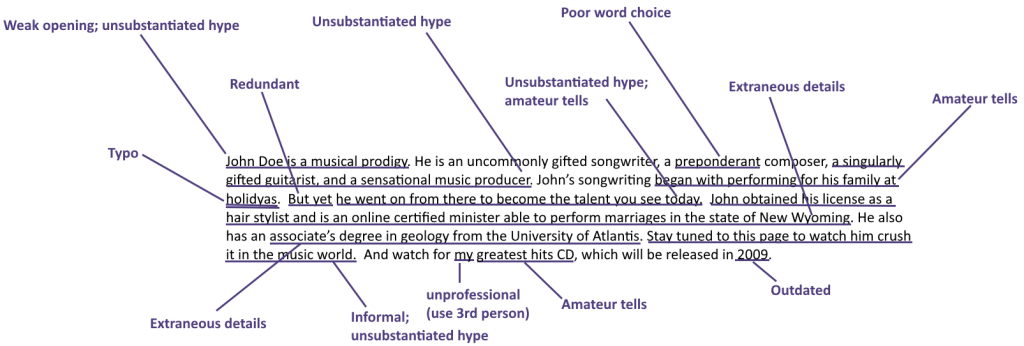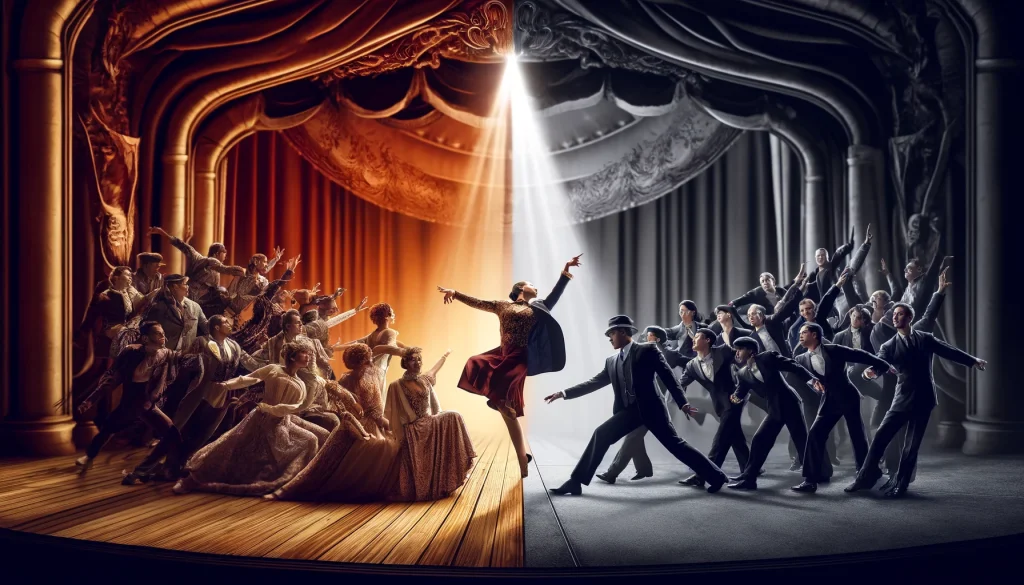At some point in your career, you’re going to need to provide a short biography (or “bio”). Here are some tips on constructing a suitable bio.
Style
- Third Person: Write your bio in the third person. (Use he/she, for instance, rather than “I”)
- Formal Tone: Keep the tone fairly formal. Some contexts may demand a less formal tone, but err on the side of formality if you’re unsure.
- Last Name: After you give your full name at the beginning, you should use a shortened form of your name. The standard for professional bios is to use your last name, with or without a title. (Remember, you’d say “Stravinsky,” not “Igor.”) When you’re young, it’s often better to use your first name. Sometimes, a less formal approach is called for, which might also recommend the use of your first name. If you’re not sure, err on the side of caution and use your last name.

All Bios Include
- Your full name
- Your birth year (optional)
- This is highly recommended for composers, because concert programs usually give the birth year of the composer. It can help those designing programs if this is readily accessible in your bio.
Things to Include Early in Your Career
You might think that you’re too young or inexperienced to write a bio. You’re not! Here are some things you can include:
- Your hometown (optional)
- When you started composing, singing, or playing your instrument
- Early performances, awards, honors, etc.
- Instruments you play
- Instrumentalists, you’d include this only if you play something other than the instrument for which you’re being featured/
- Hobbies and interests (optional)
- Who you’ve studied with; where you’ve studied
- Include your website if you have one (I recommend you have one)
General Guidelines
- Keep early career bios short, about a paragraph.
- A less formal tone is acceptable when you’re younger, but you still want to read as a professional. Err on the side of formality.
- A thank you note in your program is acceptable when you’re young.
A Sample Early-Career Bio
Gregor Samsa (b. 1985) was born and raised in Houston, Texas. He started playing the violin at age 7, later switching to the contrabassoon. He started composing in 2007, and this is his first summer attending AFA, where he studies with Colonel Sanders. He wishes to thank his mother and father, without whom he couldn’t be here today.
Things to Include Later in Your Career
- Notable Performances
- Your highest degree and where you went to school
- Optional: List all of your degrees and schools, undergrad and higher
- Who you’ve studied with
- Notable prizes, awards, and honors
- Professional recordings
- If you’re a member of any professional organizations
- Composers also often put their PRO affiliation (in the US: ASCAP, BMI, or SESAC)
- A quote or two from major reviews
- Include your website
General Guidelines
- Have bios of different lengths for different purposes. I recommend having at least a short bio (about a paragraph) and a long bio (about a page).
- While there are different strategies as to how to organize a bio, you generally are looking for an inverted pyramid structure, starting with the most critical information and moving to the least critical information. (Recommended Further Reading)
- Who You Are: Open with who you are and what you do. Try to grab our attention with something impressive, such as the inclusion of a quote from a major reviewer. Include at least one accomplishment that backs this up. (Length: 1-2 sentences in short bio; 1 paragraph in long bio)
- What You Do: A more expansive section that includes some of your impressive activities and achievements. (Length: 3-6 sentences in short bio; 1-3 paragraphs in long bio)
- Education and Things to Come: Most bios close with information about education and training. Some also include information about upcoming or current projects. (Length: 1-2 sentences in short bio; 1 paragraph in long bio)
Sample Bios
- COMPOSERS: Karim Al-Zand (short) | Libby Larsen (short) | Michael Remson (long)
- INSTRUMENTALISTS: Hilary Hahn (long) | Webster Trio (3 sample short bios)
- VOCALISTS: Weston Hurt (web bio) | Marin Mazzie (long bio)
- CONDUCTORS: Han-Na Chang (short bio) | Sean Newhouse (long bio)
- PRODUCERS: Wire Road Studios (numerous medium-length bios)
- Many other bios are available on musician websites and on the faculty pages of music departments, such as the one at the college where I teach.
Student Bio Template
This basic template gives you a starting place for writing a bio when you’re a student. Each of these would be one or more sentences:
- Front-load the most critical information. In one sentence, give your name, your place of birth, where you currently live, what you do, and what degree you’re now pursuing. You can say “aspiring” before what you do if you haven’t had any career successes yet.
SAMPLE: Jane Doe (born 1999 in Hollywood, CA) is a Houston-based pianist and composer, currently pursuing a BM in Piano Performance at University of Houston.
- Talk about your earliest studies and performances briefly.
SAMPLE: She began her studies in piano at age 7 and in composition at age 12.
- If you’re in undergrad, talk about your high school musical career briefly. If you’ve finished your bachelor’s degree, skip this, unless there’s something really noteworthy to mention.
SAMPLE: In high school, Jane performed as a soprano in her concert choir and earned top marks at solo and ensemble competitions for her last two years.
- Talk about your undergraduate academic career. Give your year in undergrad or your expected graduation date, as well as your primary teachers. If you’re a current undergrad, give additional details, including performance experience.
SAMPLE FOR CURRENT UNDERGRAD: Jane is currently a junior at the University of Houston Moores School of Music, where she studies with Courtney Crappell and Timothy Hester. She was chosen as one of only five instrumental music scholars for the 2018-2019 school year and was the winner of the 2018 concerto competition. She also performs as a soprano in the university choir and teaches tutorials for sight singing for freshmen music students.
SAMPLE FOR CURRENT GRAD STUDENT: Jane studied with Courtney Crappell and Timothy Hester at the University of Houston Moores School of Music, earning her BM with honors in 2018. While there, she was an instrumental music school and the 2018 concerto competition winner. - Talk about your graduate academic career to date, including expected graduation and primary teachers. If you’re in a bachelor’s degree, skip this.
SAMPLE: She currently studies with Brian Connelly at Rice University’s Shepherd School of Music, where she will complete her MM in Piano Performance and Pedagogy in Spring 2020. She also performs with the Shepherd School New Music Ensemble and is a staff accompanist.
- Talk about early awards and career successes. Be specific and don’t over- or undersell yourself.
SAMPLE: In 2018, Jane was awarded a scholarship from the Mu Phi Epsilon Foundation to spend a semester in Germany, where she studied historical performance practice at the Frankfurt University of Music and Performing Arts. Her research led to a lecture-recital series she has performed throughout the United States and in the UK.
- Give future career and degree plans. Do not name future institutions, unless you’ve already been accepted. If you have already been accepted, be specific (e.g., “In 2019, she will begin her MM studies at Rice University’s Shepherd School of Music, studying with Brian Connelly.”)
SAMPLE: After completing her BM in Music, Jane plans to pursue graduate study in piano performance, working toward a career as a collaborative pianist and university professor of music.
- If you’d like to include a thank you or a list of hobbies, non-musical experiences, etc., you can do so at the end of your bio. This is optional, but if there’s something particularly impressive, don’t skip this.
SAMPLE: Jane also enjoys reading and writing in her free time, and has had poems published in Vanity Fair and The New Yorker.
- If you have a website that’s ready to go, include it too.
SAMPLE: For more information, please visit Jane’s website at JaneDoePianist.com.
Common Bio Errors
- Weak Opening: Your opening should grab our attention without being overhyped and make us interested in you.
- Unsubstantiated Hype: Don’t start with unsubstantiated hype, such as “One of the great talents of his generation…” Instead, use your accomplishments to speak for themselves or use quotes from major reviewers.
- Amateur Tells: Some people’s bios unintentionally show that they are amateurs. What does “He learned the guitar last year,” for instance, suggest? To me, it suggests that you have no idea how much there is to learning guitar or that people dedicate their lives to mastering their instruments.
- Outdated: All of us fall into this trap periodically, but don’t forget to keep your bio up-to-date. Web bios in particular need additional attention, and some artists keep them very current, even starting with current and upcoming projects.
- Badly Ordered: Tend to put the most important information sooner. These tend to follow the reverse pyramid structure from journalism. Alternative, open with critical details, briefly recount your career chronologically, and lead to the present. Keep acknowledgments and hobbies at the end.
- Unprofessional Writing:
- Don’t be too informal
- Don’t use words that you think make you sound impressive if you don’t know what they mean. Be especially wary of malapropisms and homophones.
- Make sure that your sentences are grammatically and syntactically sound.
- Use correct punctuation, spelling, and capitalization.
- Extraneous Details: If it doesn’t have to do with the career you’re advertising, don’t include it. Some people, especially in actor bios and in bios of young and inexperienced musicians, will opt to include one line with hobbies. In some cases, that’s OK, but don’t let it happen elsewhere on your bio.
It’s often helpful to examine a bio that doesn’t work. Here is a fictional sample based on real errors seen in bios on the web:
John Doe is a musical prodigy. He is an uncommonly gifted songwriter, a preponderant composer, a singularly gifted guitarist, and a sensational music producer. John’s songwriting began with performing for his family at holidyas. But yet he went on from there to become the talent you see today. John obtained his license as a hair stylist and is an online certified minister able to perform marriages in the state of New Wyoming. He also has an associate’s degree in geology from the University of Atlantis. Stay tuned to this page to watch him crush it in the music world. And watch for his greatest hits CD, which will be released in 2009.
I’ve annotated that here to show where these common errors occur in this fictional example:

Musical Theatre Actor Bios
Bios for theatre are something of a unique beast, so I wanted to address these separately. Here are some guidelines:
- Write in third person.
- Include your full name when you first list it. After that, just use your first name.
- If you use a stage name, use that here. Some actors have to choose an alternate name when they join AEA, since their name may already be taken.
- Keep it short (about a paragraph). Remember that these will likely be printed in a program. If you don’t keep it really short, they may cut it for you. Some actors also require a longer bio (about a page) for personal websites.
- Avoid telling us that you’re “passionate,” “knew you had to be an actor since you were five years old,” or that the stage is a “second home.” These are clichés that make you look less unique, even if they’re true.
- Actor bios often include lists of roles, broken down by theatre, and sometimes by type of theatre (REGIONAL, OFF-BROADWAY, BROADWAY, FILM, etc.)
- These can be a little less formal and often include thank yous for your family or friends and special skills (the sort you’d put on an acting résumé).
- Include your website and/or social media handles.
The best place to find examples is to look up the website of your favorite running shows. They should have actor bios there.
What Do You Think?
What bio tips do you have to share? What bio mistakes have you seen when you’ve received bios from artists?
©2016 Aaron Alon. All Rights Reserved.











0 Comments